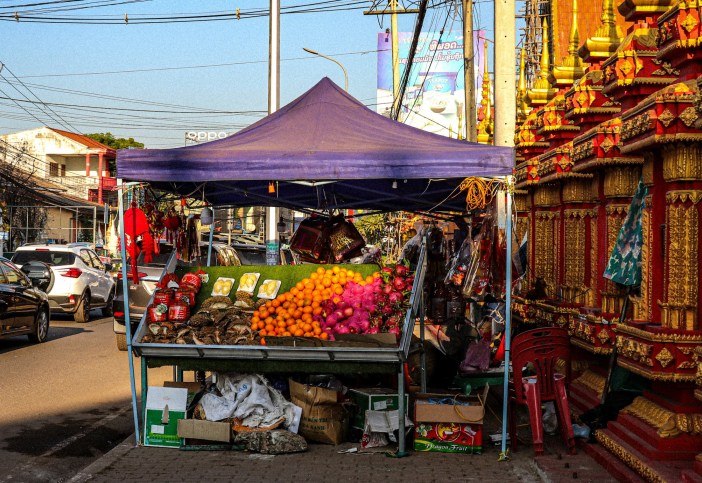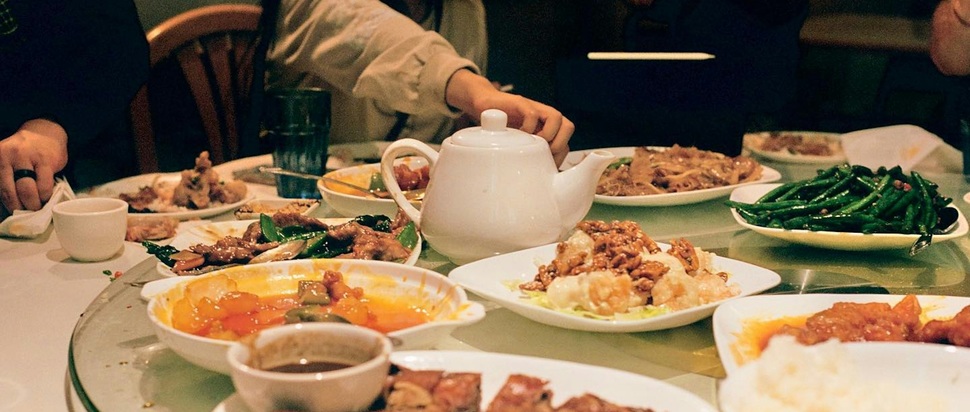Comfort and Connection: Building bonds through food
People always say that food offers a way to break down barriers and build community – in the case of Arouny Prasimay and her Lao family, that applies quite literally
“Kin khao!”
Though I don’t speak Lao, these two words signalling it’s time to eat are ones I understand loud and clear. Feeling out of place at Lao family gatherings due to my inability to communicate in their native language is a difficult sensation to shake off. Born and raised in France with a British mother and Lao father, this cultural composition does not seamlessly translate to my own sense of self. My last (and only) visit to Laos when I was five concluded on a promise to return once I spoke the language. At the time, I considered this outcome a given, harbouring the naïve belief that my DNA entitled me to magically make this happen. This was, in fact, not fated to materialise – before I knew it, 16 years had slipped by and these ambitions of fluency and travel still have yet to be fulfilled.
The chatter surrounding me at family reunions strikes a chord of acute familiarity from years of exposure, yet has always been inexorably just beyond the reach of my understanding, starkly highlighting the distance I feel from a community that I technically belong to. Although this frustration is a recurring feeling, thankfully, there is one constant that I know I can always count on: there will be food.

A fresh market stall. Photo by Tammy Kim via Unsplash
Possessing a painfully limited Lao vocabulary, a hopelessly French accent and coming to a grinding halt if I have to count past ten, my capacities of contribution to Lao conversations are essentially nonexistent. Meal-related jargon, however, I am well-versed in. Khao niao, khao poun, laab... dish nomenclatures probably account for at least half of my lexicon, which speaks volumes of what was prioritised as culturally essential by family as well as the nature of the majority of our time spent together.
Given this, it will therefore come as no surprise that meals lie at the heart of the time spent in my Lao relatives’ company and my biggest – if not sole – connection to this culture. With somewhat inhibited capacities of communication from either side, our primary source of connection is the dishes placed on the table between us. Representative of a labour of love, these familiar flavours are intrinsically evocative of the little time I spend in Lao spaces and instrumental in bridging the distance to a culture I sometimes feel worlds apart from. For those of us caught between feeling disconnected from a community we belong to yet have difficulty claiming as our own, the universal quality of sharing a meal can represent a fundamental entry point in building our sense of belonging.
Yet food offers a universal way to connect with others even beyond the context of identity and linguistic barriers. Having grown up in an environment where food is a primary love language, a tendency I have also inherited, I can usually predict my father’s first instinct if he catches me upset is to offer me a bowl of noodles – a gesture which instantly puts a smile on my face. In situations where words fail us, food is a strong place to start in providing a necessary comfort and connection, and can sometimes speak louder than words.
Arouny Prasimay is an International Business graduate, based between London and Paris. Passionate about all things creative and culinary, she documents her interests on Instagram @arounysappetite
This article is from issue two of GNAW, our new Scottish food and drink magazine. Free copies are available in venues across Scotland, or read the full thing via Issuu. Follow GNAW on Instagram @gnawmag
